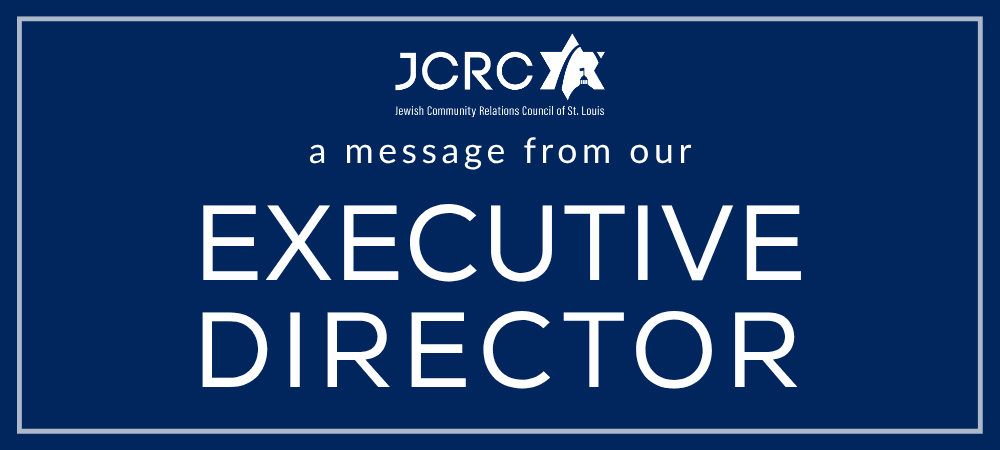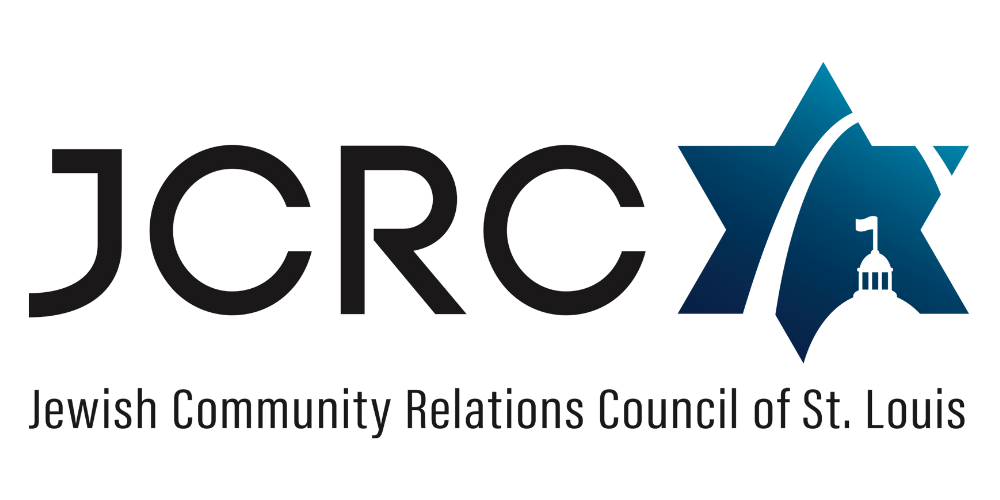
As the month of Elul leads into our High Holidays and we reflect on change in a personal and a communal sense, this intense moment of introspection can be both a time of inspirational renewal and a time of troubling confusion.
For those who take this time of year to embrace self-improvement, we often look to how we impact friends, family, and the world around us. And for those who equate Teshuvah (change) with global change, this year is likely proving to be much more of a challenge than others.
When I think about the work of JCRC, I consider this imperative for transformation. In our world right now there seems to be debate about whether we are meant to seek improvement constructively for a better tomorrow. On one hand, if the better time was behind us – is that regressing or just a different kind of change? On the other hand, if you see injustice and the need for change all around you – how can you remain complacent or accept any “going back” at all? Frankly, in today’s world, one might even question if change is a core value of Judaism and our community right now or are there other priorities that have superseded it during the days that are not the High Holidays?
For me and many others, Elul, the High Holidays, and the Counting of the Omer have always been those markers throughout the year that answer this question.
- Elul prepares us for the intense introspection of Yom Kippur. We recollect, reflect, and prepare – no different than when the Bar’chu prepares us for the contemplation of Shabbat service.
- Rosh Hashannah is the time marker. We stop and mark the moment where we are meant to convene, gather communally, and instruct our children that this time of year is a big deal. It is the culmination of one cycle, and before we begin the next year or our lives – we stop and engage with …
- Yom Kippur, where we and think about what we could do differently - not just to make us better people but to make our families, our communities, and our world – better.
There is no question that this is what we are commanded to do – and then beyond this window, we spend the next 50 weekends of the year revisiting the commitments we made and the realizations we embraced. Each week of Torah reading is a chance to take stock of the reflections we had during Elul and the holiest days of our year. And each Jewish holiday
is another chance to focus on various themes like our capacity for love, leadership, courage, and compassion. And before we reach Shavuot we enter the 7-week process of …
- Counting the Omer - a gift in the Jewish tradition where we once again reflect, remember, recommit, and rededicate ourselves – to improvement. To improve ourselves, our relationships with others, and the world around us.
I lay out this Jewish blueprint for repairing our world because so many of us judge our success with personal improvement by how we are able to make manifest change in the world around us. We judge ourselves by this and yet in today’s world especially, we feel like we have no control over some of the most seismic global shifts we have seen in decades.
Sometimes I think the stress I see on people’s faces right now is the disappointment in ourselves for not being able to have the impact we want in the world. Or even the confusion around how we bring our best selves to anything when there is so much to be distraught and angry about. We often ask ourselves whether our interactions on the issues we care most passionately about are respectful, moderate, reasoned, and temperate. Did we have just the right amount of compassion, strength, and empathy in this moment? When we feel so not in control and when our cry for justice is so intense – can we step back and avoid hate, demonization, and maybe even violence. I do not believe there is any one way around the tension in our world right now. But one kernel I think I can offer is how we might be able to re-frame or re-consider our role in the grand scheme of global change.
In the Jewish community, we are often hugging and wrestling with both Israel and the United States. So many of us feel deep connections and love for Israel through the people, the culture, the places, and its meaning for us as the place that propelled the Jewish tradition into the world. So many of us also feel a deep connection and love for the United States; this amazing land of opportunity that at any one moment can be a beacon of democracy and pluralism - while also being a place with extreme hate, bigotry, injustice, and violence – just like Israel.
So many of us want desperately to help transform both places so both can lean more into their role as beacons rather than reactionary nations that are more of a threat to life and liberty than we have seen in years. And again, how do we make change when it seems we have no control over the governments or trends that we fear? And how do we make sense of any of this when so many do not seek the same change we do?
We must challenge the perception that any of this is new. Our modern leaders and our age of social media has convinced us that change can be quick. We think that social movements spurred on by people typing behind a computer are the keys to making change – and we know they do not.
In both the American context and in the context of the Israeli Palestinian conflict we know social media has lent itself to misinformation, confirmation bias, and content that is meant to sensationalize rather than promote reason and rational thought.
So, one might ask … what is to be done.
Well, I think the first thing is to stop thinking about change in the American sense of instant gratification. There are no quick roads to change, peace, justice, or equity. However, you still CAN be the change you want to see in the world. It just takes seeking the change that is in front of you – not the sweeping change of momentous peace deals or political earth-shattering upheaval.
Rather than thinking about how we can impact the flow of history by joining a group that says this, shouts that, or posts this - think about how to impact each other in personal, direct ways. In so doing, we impact the flow of history in small but intentional and important ways. This has always been what change has been about. The teacher in the classroom. The one-on-one conversation – had over, and over, and over again. Howard Zinn always believed that leaders do not really shape history but that the mundane actions of everyday people do. I would tend to agree.
We may have to be ok with the fact that we will not be able to restore our democratic institutions overnight. But we can reach out to this person or that person in our own community and have a conversation or help them in a moment of crisis. We do have local organizations we can join that take action for the people down the street from us. We also have multiple ways to enter into dialogue with “coalitions of the willing” who also want to do this work and improve the world one conversation at a time.
Some will say – “but isn’t it more important to change the minds of those who disagree with us?” And I will ask you to read that line over and over and think about the folly in that. Of course, we stand up for our values and our beliefs. Of course, we let the community know when we think others have offended our community or crossed a line. But to make change. That is hard work. It happens over significant periods of time. And it doesn’t happen with a press release or a post. This is what I believe in, and this is what JCRC is about.
When I am asked about Israel in this context, I express the same beliefs. Just like in America, there are powerful forces behind the scenes pushing an agenda. And just like in America, I do not have control over the current government or the people who put them in power. But what I can do is engage with people there. Not on social media but by going there. There are Israelis and Palestinians who are willing to speak civilly and chart a new future. There are people working with each other to build bridges of understanding. Will that change things overnight? No. Will that stop extremists or governments from acting in
ways that seek to damage those relationships. No. But it is real. It is the change in front of me. And it is the change I can make. This is what I believe in, and this is what JCRC is about.
So, in this holiday season of reflection and in this time of hugging and wrestling, I do think we need to ask where we can make this kind of change and act on it. I do think we need to marginalize those spewing hate through their posts, their articles, and their videos. Instead of engaging with them or fretting about their influence, there is so much opportunity to reach out to real, sincere people who are willing to be honest, open, and true. The time spent responding to those who are virtual, and maybe not even in our community – should instead be spent making friends and allies, deepening relationships, and building a new way of thinking about the kinder and gentler world we want to see.
Shanah Tovah Umetukah,
David
